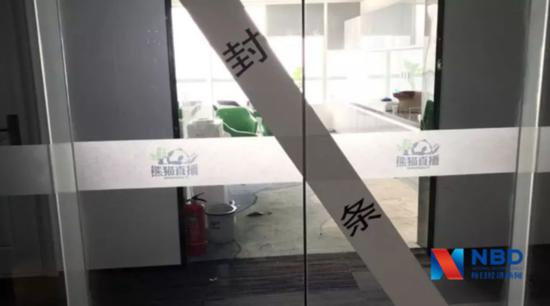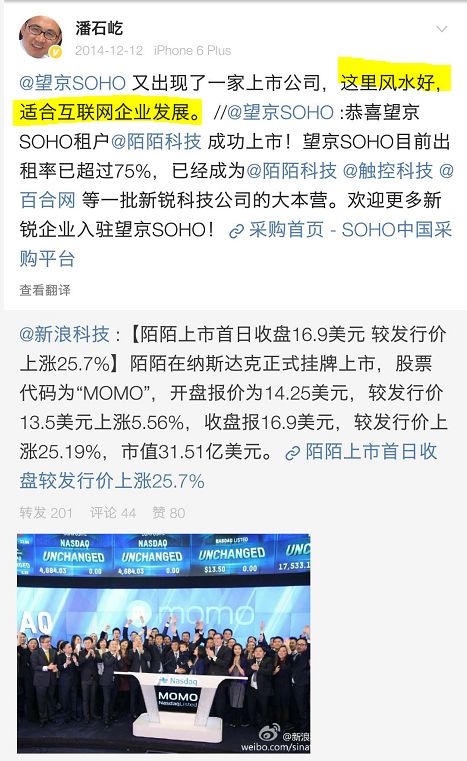Real estate billionaire wins libel case over claim that his building has bad feng shui
Real estate billionaire wins libel case over claim that his building has bad feng shui

SOHO China, one of China’s largest real estate companies, led by billionaire Pān Shíyì 潘石屹, has won (in Chinese) a libel battle against a WeChat blogger, who wrote in a widely circulated article that the developer’s Wangjing SOHO complex in Beijing, which contains a trio of curved towers, was an inauspicious project because of its bad feng shui.
The blog that landed the writer in trouble was published on a WeChat public account called “Mystic Quacks Bureau” (S神棍局S Shéngùnjú) in November last year. In the article, author Mr. Ruan 阮, who writes under his pen names, Qínbào 禽暴 and Yìquán 屹泉, called the development a “waterloo for internet companies” whose location attracts “negative energy” and whose layout is “ominous.”
To back up his argument, the blogger included annotated maps and diagrams in the post. In addition, he listed a string of examples to illustrate how the project had brought bad luck to its tenant companies — including video-streaming platform AcFun, which failed to pay its bills last year, bicycle-sharing company Bluegogo, which declared bankruptcy in 2017 and is still struggling to stay afloat after being acquired by ride-hailing giant Didi Chuxing, and live-streaming site Panda TV, which went out of business this year.

The article also attacked the building’s appearance, saying that its bizarre look bears an uncanny resemblance to a pig kidney. The complex was designed by world-renowned architect Zaha Hadid and has won the 2014 Emporis Skyscraper Award. In conclusion, the author noted that the complex is only suitable for startups at their early stage of development, urging tenant companies that are experiencing fast growth to move out as soon as possible.
The article garnered more than 100,000 views before it caught the attention of SOHO China’s founder, Pan Shiyi, who slammed the blogger for “spreading ignorance and superstition” in a Weibo post. While Shengunju deleted the post per Pan’s request, SOHO China later filed a libel lawsuit against the media company that owns the account, accusing it of making up malicious claims that allegedly tarnished the developer’s reputation and caused psychological harm to its clients. In addition to financial compensation, SOHO China demanded that the media company publish its apologies in newspapers such as the People’s Daily and the Legal Daily.
Beijing’s Chaoyang District People’s Court announced today that the account was found guilty of slander. The media company was ordered to pay SOHO China 200,000 yuan (US$29,800) in compensation and to deliver a public apology to it.

Though the case is settled at this point, one lingering question that remains is: Does Pan’s disbelief in feng shui really hold up? As a centuries-old Chinese geomantic practice that emphasizes the natural world’s impact on things based on how they are arranged, feng shui often plays a big role in site selection and construction of dwellings in China. So it shouldn’t come as a surprise that feng shui has a special appeal to real estate developers, many of whom believe that the locations and layouts of their assets should be in harmony with the surroundings. And it seems like before Pan passionately rejected feng shui in his post condemning Shengunju, the billionaire was actually a big believer. When Wangjing SOHO’s tenant Momo went public in 2014, Pen commented on the news, saying that the complex had “good feng shui” for internet companies. He also mentioned multiple times on his Weibo that one of his best friends is a “feng shui master.”






